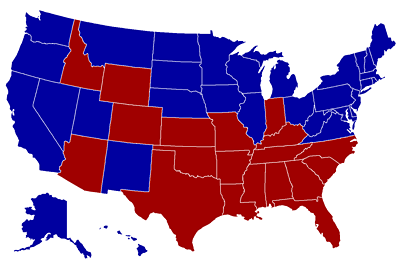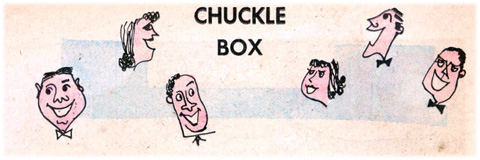- There's an Indian restaurant a few blocks from my house that's pretty
darn good — not the sort of place you'd drive to from twenty
miles away (that's Shalimar), but my go-to pick when I feel like Indian
food and don't want to leave the neighborhood.
One odd quirk of the place is that when I go to pick up my food, the
proprietors always rhapsodize about how delicious it is and how much I'm
going to enjoy it.
Is that really a good strategy for a restaurateur?
I've already purchased the food, and am about to taste it for
myself.
All this kind of talk does is raise my expectations!
Maybe I would have been perfectly happy with my meal, but now that I've
been led to believe that it's going to be a taste extravaganza that will
change my life, how can I not be disappointed when it inevitably falls
short?
- Now that I have some time to work on my own projects, I've been
gearing back up to get the next couple of issues of
Evil Creatures out.
While I was on Deviantart clicking through the portfolios of people
applying to contribute art, I followed some links and found myself in
a gallery of girlie pics — not terrible, but not great
either.
The artist was one of those guys who at one point had decided, "I'm
going to draw faces this way," and used the same set of stylized
cartoon faces in drawing after drawing after drawing.
It was only after several minutes of browsing through the pictures that
I clicked on a link to the artist's home page and saw his real name, and
discovered… I'd gone to high school with this guy!
Not only that — he'd briefly been the cartoonist for the school
paper, but I had fired him, because he drew every face the
same!
- Life in the social media age: posting a picture of the cookies you
just put into the oven so you can monitor the "x minutes ago" tag and
thereby tell when it's time to take them out.
- Q: What's this?

A: If you guessed "the 2012 election results," you're correct… for 89.2% of the population. But the red states in this map are actually those that allow corporal punishment in schools. That's probably not a coincidence.
- NPR version: "When it comes to controversy, there's no time out for
Dennis Rodman in North Korea. Fresh off a combative CNN interview in which
he loudly defended his latest 'basketball diplomacy' mission to the brutal
and secretive regime, he has courted further disapprobation by publicly
leading a rendition of 'Happy Birthday' for Supreme Leader Kim Jong Un,
who may or may not have turned 31 on Wednesday."
KCNA version: "He sang a song reflecting his reverence for Kim Jong Un, touching the spectators."
- A reader sent me a "bigotry test" from an old DC comic —
it asked you to weigh in on how much you liked such things as cabbage,
spiders, Catholics, and Negroes.
"All of us have some things we don't like," the PSA explained. "When
they're vegetables or insects — no one cares. But when they're
people — you hurt them and cheat yourself."
(Presumably when they're arachnids no one cares either.)
One of the items on the list was "long-hair music," which to me pegged
the ad as being from 1964, maybe '65 — late enough for the
Beatles to have appeared on Ed Sullivan's show, but early enough that
the phrase "long-hair music" wouldn't yet have become a laughably
out-of-date epithet.
But then I looked up the issue and the ad was from… 1959?
What was "long-hair music" in 1959?
Wait, were they talking about Elvis?
No, the reader replied — they meant classical
music.
Because, y'know, Beethoven and those guys had long hair.
This seemed like a stretch to me, but I did some research, and gadzooks,
it turns out that this was in fact a common term for classical music in
the '50s!
Did you know that?
No one I have asked knew that.
If you knew that, were you around in the '50s?
If not, where did you encounter the term?
What a goddamned thing.
- I went to a pizza place that had some TVs on the wall; they were tuned
to CNN, with the volume down and the captions on.
I glanced at the program as it was going to a commercial, and saw this
teaser: "They're some of the most popular small cars in the
country — but are they safe to zplooif?"
- In 2000, I had a conversation with a female friend about whether, if
it were possible, each of us would switch bodies with the other to find
out whether being the other sex was more fun.
In 2014, having forgotten the earlier conversation, I had a conversation with the same friend about whether, if it were possible, each of us would switch bodies with the other to find out which of our crippling medical conditions was more tolerable.
I think that pretty much sums up the human condition, dunnit?

- Here's a retweet that showed up in my Twitter feed:

In 1955, Rudolf Flesch published a book called Why Johnny Can't Read, which argued that English-speaking children should be taught to read using phonics. At the time, most American schools taught whole word recognition: kids would learn that the word net meant "net" without it being explained that the n made the "n" sound and the e made the "ehh" sound and the t made the "t" sound. As a consequence, when these kids encountered the written word ten, they had no idea what spoken word it could possibly correspond to. Why are we acting like English words are Chinese ideograms?, Flesch asked. The advantage of an alphabetic system is that once you've learned the alphabet, you've instantly unlocked every word in the language (though admittedly English has more than a few irregularities to take into account). His argument was hugely influential, and my generation was taught how to read by Sesame Street and The Electric Company, which used phonics.
All that said — literate adults don't actually use phonics when they read! They use whole word recognition. You glance at the word, you instantly take in its length and its shape, and you know what word it is. That's why it's so easy to miss typos — there's not a whole lot of visual difference between a correctly-spelled word and the same word with a missng letter or with a couple of letters trasnposed. But when the change is enough to change the basic shape of the word, it's a problem. The studies I've read have suggested that intelligibility depends on the first and last letters being correct and with the word being roughly the correct length; having ascenders and descenders where they're expected is also a big help. When literate adults are reading along and encounter the word you, their brains immediately recognize it as the second person pronoun and take that into account when decoding the meaning of the sentence. But when they encounter the non-word u, that doesn't happen as quickly. It doesn't have the right length and shape. A texter might say, "But it's shorter and it sounds the same!" — but the point is that the sound doesn't matter. If you're sounding out what you read, rather than taking in the words at a glance, then you're not actually fully literate yet. Phonics are a great tool for learning to read, the same way that training wheels are a great tool for learning to ride a bike — in both cases, you eventually toss out the crutch. Yes, you can protest that as recently as the 18th century people spelled words any damned way they pleased, but again, that's kind of the point — the reason that orthography became standardized is that that shit was harder to read than it had to be. Sticking to standards makes reading effortless, even unconscious. Deviating from them soon makes reading unbearable, like those Victorian novels full of uncorrected dialect.
So, back to this tweet. It could have been really funny! The fact that the word Eagles refers both to a successful musical act and to a largely unsuccessful football team is a fun coincidence, and this joke exploits it well. But that's just the thing. The word Eagles refers to both those things. The non-word #eagles doesn't refer to either. The fact that the capital E is missing means that word recognition doesn't happen instantaneously — it takes a fraction of a second to analyze the string and process that, ah, it's the word "Eagles", only rendered as a tag. This leads to two problems. First, "this is a tag" is a piece of information that is irrelevant in this context and interferes with the meaning: the tag "#eagles" is neither a musical act nor a football team. It's a tag. Second, even putting that aside — that split second of "wait, what's that word?" undermines the joke purely by interfering with the timing. It's the written equivalent of a stand-up comedian stumbling over or mispronouncing the key word in the punch line. Sure, a fraction of a moment later you get what the comedian meant to say, but that fraction of a moment is the difference between an actual laugh and an "Ah, yes, very amusing."


